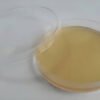
Applications of Granular Culture Media in Microbiology
Granular culture media play a crucial role in microbiology, providing a versatile and efficient solution for various laboratory processes. This type of media offers several advantages over traditional powdered media, such as ease of preparation, enhanced solubility, and minimized risk of contamination. Below, we explore the applications of granular culture media in microbiology and how it contributes to advancements in research and diagnostics.
1. Rapid Microbial Growth and Detection
One of the primary applications of granular culture media is in rapid microbial growth and detection. Due to its optimized formulation and superior solubility, granular media dissolves more quickly in water compared to powdered media. This reduces preparation time and allows for faster media sterilization, enabling laboratories to accelerate microbial cultivation and testing. For microbiology labs, this translates into faster identification of pathogens, which is critical for timely diagnosis and treatment.
Key Benefits:
- Reduces preparation time
- Speeds up the detection of pathogens
- Enhances efficiency in clinical and industrial microbiology

2. Enhanced Consistency in Microbial Cultures
Granular culture media provides better consistency in preparation, ensuring a more reliable and uniform environment for microbial growth. This consistency is especially valuable in quality control processes within industrial microbiology, where maintaining strict standards is essential. The uniform particle size and formulation of granular media reduce the variability commonly associated with powdered media, leading to more reproducible results in experiments and tests.
Key Benefits:
- Improved consistency and uniformity in microbial growth
- Minimizes risk of batch-to-batch variation
- Ideal for high-precision applications
3. Optimized for Fermentation Processes
In industrial fermentation, maintaining a stable and predictable environment for microbial cultures is vital. Granular culture media are often used in fermentation processes for pharmaceuticals, food, and beverage production. Their consistent quality and easy dissolution allow for more predictable microbial activity, resulting in higher yield and quality of the end product. Granular media also facilitates the scale-up of fermentation processes, making it an ideal choice for both research and industrial applications.
Key Benefits:
- Supports high-yield fermentation processes
- Enhances scalability of industrial production
- Ensures quality consistency in large-scale applications
4. Application in Antibiotic Susceptibility Testing
Granular culture media are also increasingly utilized in antibiotic susceptibility testing (AST), an essential component of clinical microbiology. AST requires precise and consistent media conditions to accurately assess how effective an antibiotic is against a specific pathogen. With its reliable formulation, granular media reduces preparation variability, thereby improving the reliability of susceptibility test results. This supports accurate and timely decisions in clinical treatment.
Key Benefits:
- Improves accuracy in antibiotic susceptibility testing
- Enhances reliability of AST results
- Reduces variability for more standardized testing protocols
5. Environmental Microbiology and Soil Analysis
In environmental microbiology, granular culture media are used to cultivate soil microorganisms, aiding in soil quality assessments and ecological research. Due to the media’s consistency and stability, it is particularly useful for isolating and studying bacteria and fungi that play a role in nutrient cycles and soil health. Granular media enables environmental microbiologists to prepare a reliable substrate quickly, facilitating research on microbial diversity and environmental impact.
Key Benefits:
- Streamlines soil microorganism cultivation
- Supports studies on microbial ecology and biodiversity
- Ideal for ecological and environmental microbiology research
Conclusion
Granular culture media has proven to be a valuable tool across various microbiology applications. By offering quicker preparation, consistency, and reliable results, it enhances productivity in both research and industrial settings. From pathogen detection to fermentation and antibiotic testing, granular media is transforming laboratory practices and contributing to more efficient and precise microbiological studies.
Recent Posts
- Essential Tips for Proper Culture Media Storage and Handling
- Understanding the Role of Transport Culture Media in Clinical Diagnostics
- Breaking Down the Role of Culture Media in Pharmaceutical Research
- A Guide to Using Culture Media for Strict European Cosmetic Safety Compliance
- The Role of Culture Media in Ensuring Accurate Cosmetic Microbial Testing



